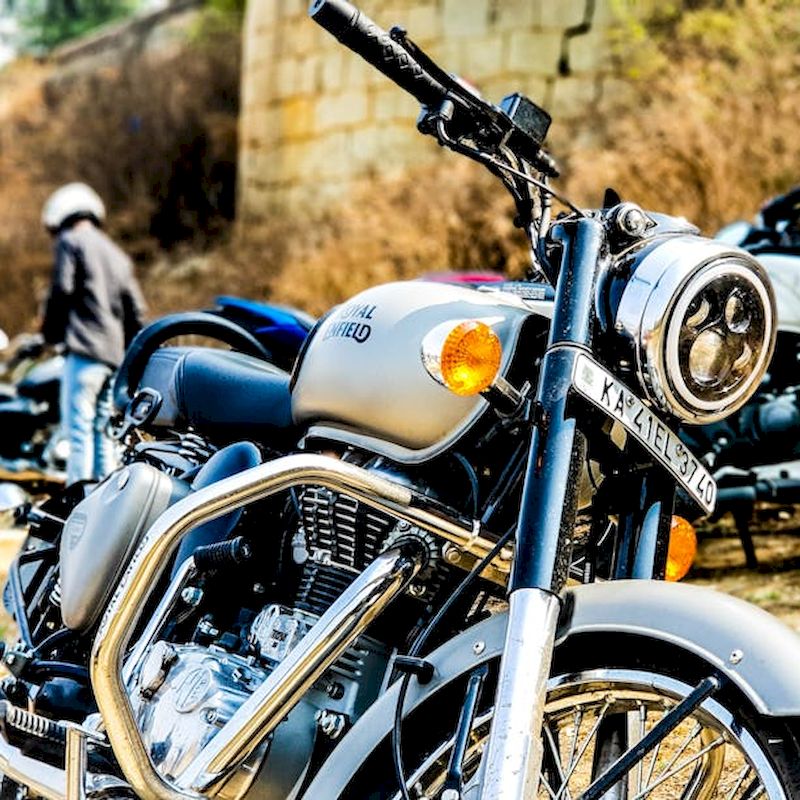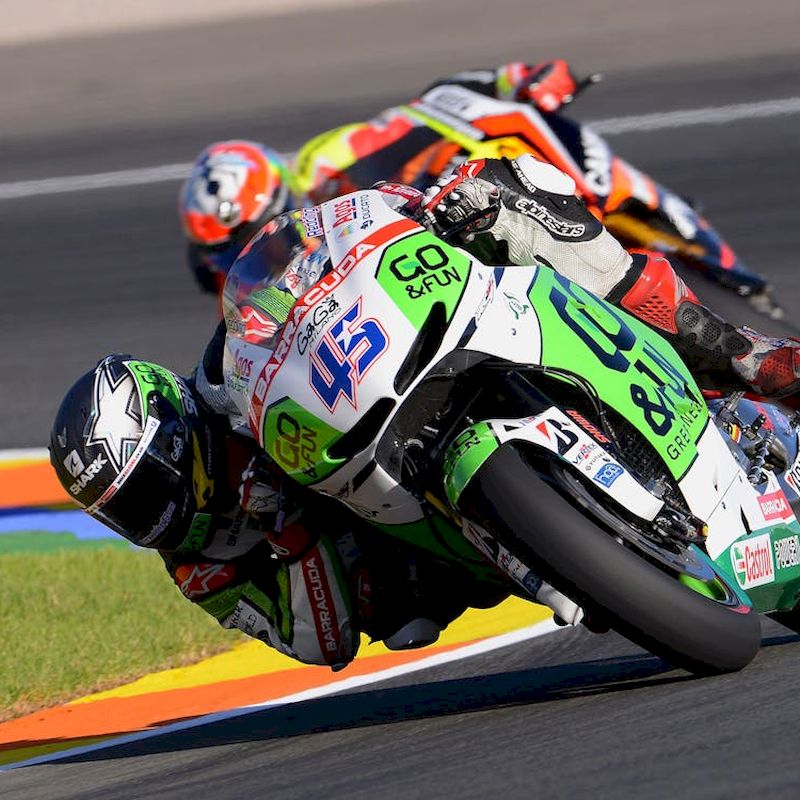Riding a motorcycle is a thrilling experience that many people in New Jersey aspire to enjoy. However, before hitting the open road, it’s essential to comply with the state’s regulations by obtaining a motorcycle license. Understanding how to get a motorcycle license in NJ involves various steps, including acquiring the necessary permits, taking a safety course, and passing specific tests. Each step is designed to ensure that riders are prepared and educated about motorcycle operation, safety, and the rules of the road. This guide will walk you through every aspect of obtaining your motorcycle license in New Jersey, from the initial application phase to tips for passing the required tests and everything in between. Whether you are a new rider or someone looking to upgrade their license, this comprehensive overview will provide the knowledge and resources necessary for success.

Understanding Motorcycle Licensing in New Jersey
To begin your journey on how to get a motorcycle license in NJ, it’s crucial to understand the licensing structure and the different classes of motorcycle licenses available.
New Jersey Motorcycle License Classes
In New Jersey, obtaining a motorcycle license can vary based on your age and experience level.
- Class M License: This is the full motorcycle license allowing you to operate a motorcycle without restrictions, including passenger transport.
- Class E License: For individuals who already hold a driver’s license, this class adds the ability to ride a motorcycle under certain conditions. It typically comes with specific restrictions compared to a full Class M license.
Learner’s Permit
The learner’s permit is an essential step for new riders.
- Requirements: To obtain a learner’s permit, you must be at least 17 years old and hold a valid New Jersey driver’s license. The learner’s permit allows you to ride a motorcycle under certain restrictions.
- Restricted Riding: It’s important to note that, with a learner’s permit, you cannot ride after dark, and you should not carry passengers.
Pre-License Requirements
Before you can start the process of obtaining your motorcycle license in NJ, several prerequisites need to be met.
Age and Identification
Understanding the age requirements is crucial when applying for your motorcycle license.
- Minimum Age: As mentioned earlier, you must be at least 17 years old to obtain a learner’s permit. If you are under 18, you will also need parental consent.
- Documentation: You will need to provide identifiable documents, including proof of residency and age, such as a birth certificate or passport.
Motorcycle Safety Course
Taking a motorcycle safety course is highly recommended and involves several advantages.
- Benefits of Completing a Course: Enrolling in an approved motorcycle safety course can enhance your skills and knowledge. Successfully completing this course often makes it easier to obtain a motorcycle license in NJ, sometimes waiving the need for the road test.
- Additional Preparation: The course typically covers essential topics, including motorcycle mechanics, traffic laws, and safe riding strategies, ensuring you are knowledgeable before venturing onto the road.
The Application Process
Once you’ve completed the prerequisites and are ready to proceed, it is time to dive into how to apply for a motorcycle license in NJ.
Obtaining Your Learner’s Permit
Begin by applying for a learner’s permit, which allows you to practice riding.
- Visit the MVC Office: Schedule an appointment at your local Motor Vehicle Commission (MVC) office. You’ll need to fill out an application form and pay the applicable fees.
- Knowledge Test: Be prepared to take a written knowledge test covering motorcycle operation and safety. If you pass this test, you will receive your learner’s permit.
Taking the Motorcycle Safety Course
If you haven’t already completed a motorcycle safety course, it’s time to research approved programs near you.
- Locate an Approved Course: Various organizations offer motorcycle safety courses in New Jersey. Consider checking the NJMVC website for a list.
- Course Structure: The course typically includes both classroom instruction and practical riding sessions, designed to enhance your skills.
Satisfying the Course Prerequisites
Once completed, ensure that you fulfill any additional prerequisites before proceeding:
- Certificate of Completion: Obtain a certificate proving your successful completion of the motorcycle safety course. This often serves as evidence when you apply for your motorcycle license.
- Documentation for MVC: Bring the completion certificate and your learner’s permit to the MVC office.
Transitioning to a Full Motorcycle License
After successfully acquiring your learner’s permit and completing the motorcycle safety course, you can start working towards obtaining your full motorcycle license.
Practicing Your Skills
To prepare for the road test, practice riding as much as possible.
- Real-World Experience: Logging hours on the road will enhance your comfort and confidence while riding. Ensure you practice various maneuvers required for the road test.
Road Test Appointment
The next step on how to get a motorcycle license in NJ is scheduling a road test.
- Test Requirements: Typically, you’ll need to schedule a road test through the MVC in advance. Bring your learner’s permit, motorcycle safety completion certificate, and any necessary fees.
The Road Test
The road test assesses your ability to operate a motorcycle safely and competently.
- Test Components: Expect to demonstrate crucial skills such as turning, stopping, lane changes, and overall safety awareness. Practice these skills beforehand to increase your chances of passing.
- Preparation on Test Day: Ensure that you arrive with a properly registered and functioning motorcycle, as it will be inspected before the test begins.
Post-License Considerations
Once you have successfully passed the road test, you are well on your way to becoming a licensed motorcyclist.
Receiving Your Class M License
After passing the road test, you will receive your motorcycle license.
- Transition: You might initially receive a temporary license until your official license arrives in the mail. Ensure you confirm that your license reflects the correct class (Class M).
Riding Responsibly
With your new license in hand, remember that the journey doesn’t end here.
- Ongoing Practice: Continue to build your skills, practice defensive driving techniques, and always stay aware of your surroundings while riding.
- Stay Informed: Follow local laws and regulations, and keep up to date with any changes within motorcycle licensing requirements in New Jersey.

Tips for Safe Motorcycle Riding
This guide would be incomplete without addressing motorcycle safety.
Wear Appropriate Gear
Invest in high-quality safety gear that includes:
- Helmet: A DOT-approved helmet is crucial for protecting your head.
- Protective Clothing: Consider jackets, armored pants, gloves, and appropriate footwear designed for motorcycle riding.
Maintain Your Motorcycle
Regular maintenance will prolong the life and performance of your motorcycle.
- Routine Checks: Perform routine checks on brakes, lights, oil levels, and tires to ensure everything is functioning properly.
Stay Alert
Riding a motorcycle requires constant vigilance.
- Awareness of Surroundings: Always stay aware of other vehicles, road conditions, and potential hazards to improve your chances of safely navigating traffic.
Adhere to Traffic Laws
Following the rules of the road keeps you safe and compliant.
- Obey Speed Limits: Know your limits and always ride within the posted speed limits.

Conclusion
Navigating the process of how to get a motorcycle license in NJ may appear complex at first, but with the right preparation and knowledge, it can be a rewarding experience. From acquiring your learner’s permit and completing a motorcycle safety course to passing the road test and obtaining your full motorcycle license, each step plays a critical role in ensuring that you are a competent and safe rider.
Remember, riding a motorcycle is not just about the thrill; it also involves responsibility and a commitment to safety. By following the guidelines laid out in this comprehensive guide, you can successfully achieve your goal of becoming a licensed motorcycle rider in New Jersey and experience the excitement of the road with confidence.
Embrace the knowledge gained throughout this journey and approach your rides with both enthusiasm and caution. With the right preparations, gear, and ongoing education, you can fully enjoy the freedom of motorcycling while prioritizing your safety and the safety of others on the road.